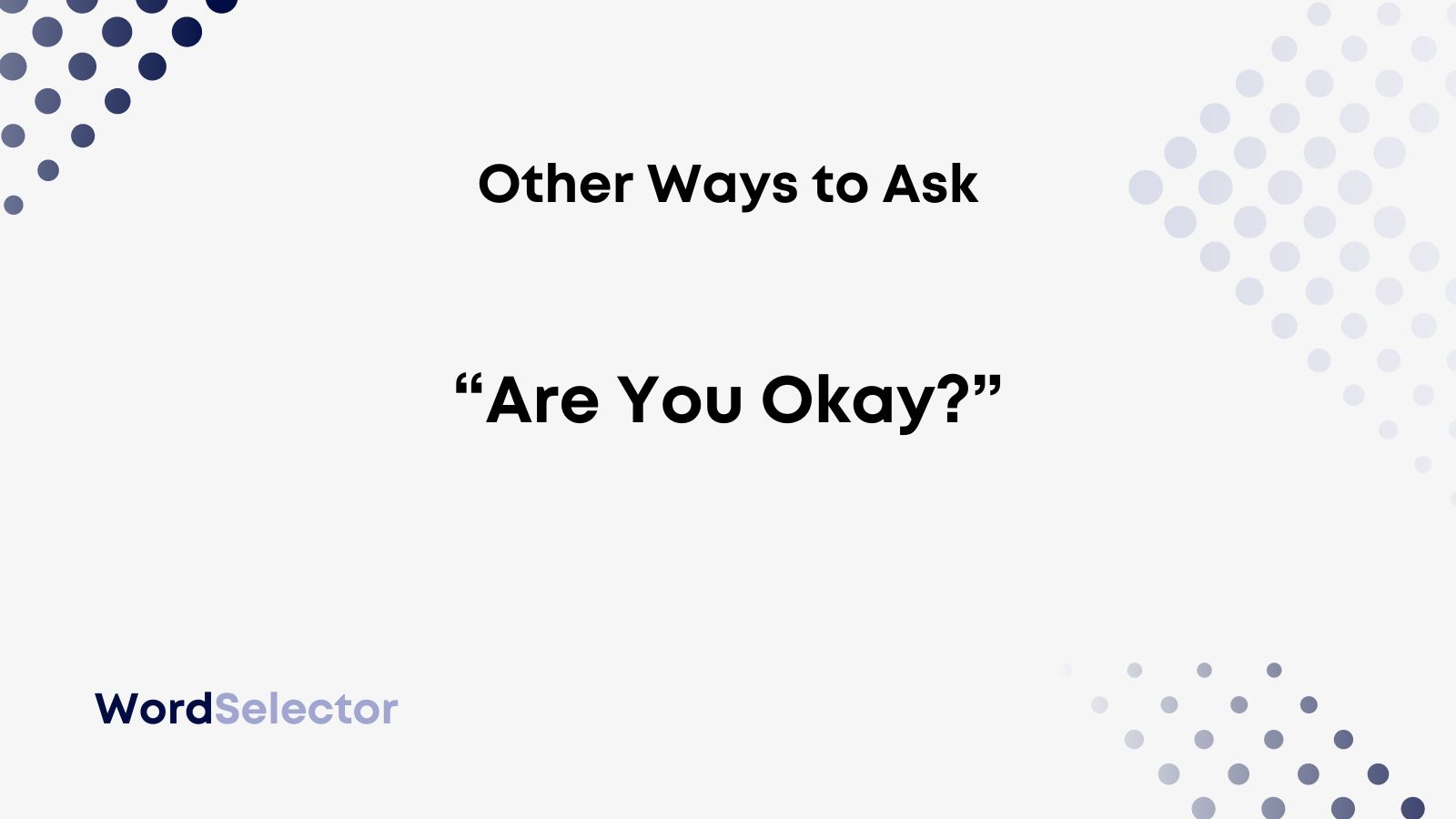Do you know someone who is having a hard time and needs help? You might try to ask “are you okay?” but it might come across as insensitive.
Luckily, there are plenty of better ways to word the question. This article will show you some of the best things you can say.
Other Ways to Ask “Are You Okay?”
- How are you?
- What’s up?
- Are you good?
- Are you doing well?
- How do you feel?
- What’s the matter?
- Is something wrong?
- You don’t look okay
- Do you need help?
- Do you need someone to talk to?
- How are you faring?
- What can I do to help?
- Do you want to talk about it?
- What’s wrong?
- I hope you’re okay
KEY TAKEAWAYS
- “Are you okay?” is a decent question to ask, though it doesn’t feel as personal as some other choices.
- Try using “how are you?” in formal situations to find out how someone feels and whether they want to open up to you.
- “What’s up?” is a much better choice when speaking to friends, allowing you to find out how they feel.
Continue reading to learn the different ways to ask if someone is okay. We’ll help you understand how to ask “are you okay?” in a more caring manner.
We’ve also explained why “are you okay?” might not always be an effective choice. You can skip to the final section to learn more about that.
How Are You? (Formal)
“How are you?” is one of the most well-rounded alternatives in formal situations.
You can use it to find out how someone is feeling. It also leaves it up to the answerer to decide how much they tell you.
For example:
Person 1: How are you?
Person 2: Good.
Person 1: How are you?
Person 2: I’m not so good, and I could really do with some help.
You can see two different responses from these examples.
Sometimes, you might find that someone doesn’t want to talk about their feelings (like in the first example). If this is the case, you should leave it at that, as you don’t want to pressure them.
Someone may also give you a longer response (like the second example). If this is the case, be sure to lend a supportive ear and show someone you care.
We encourage using “how are you?” over “are you okay?” in most formal cases. It’s better because it leaves the question open-ended, allowing the person answering to decide their own response.
Here are a few more examples to help:
So, how are you? I worry that you’re not yourself lately.
How are you? If you need to talk about anything, you can certainly come to me.
What’s Up? (Informal)
“What’s up?” is an informal synonym for “are you okay?” that works well when talking to friends.
You should use it to get a general rundown of how someone is feeling or what they get up to.
Above all, “what’s up?” works really well in most conversational contexts. It isn’t a direct question, so the answer can be open to interpretation. You might receive a simple “nothing much” or a more complex “I need to talk to you.”
Generally, the answer to “what’s up?” will depend mainly on your friendship. After all, a closer friend will always want to open up when you ask them.
We don’t encourage using “what’s up?” in business contexts, though. Stick to “are you okay?” in formal situations since it sounds more professional and polite.
Check out a few examples to see how this informal question works:
What’s up, Matt? You certainly seem like you could do with some help!
So, what’s up? I thought everything was starting to look up for you!
Is It Okay to Ask “Are You Okay?”
“Are you okay?” is okay to ask, but it’s not always the most effective question.
Many see it as impersonal because it does not show direct interest in someone’s well-being.
“Are you okay?” feels like a brush-off comment or question to most people. Answers like “yeah” or “I guess” are common because most people don’t want to trouble others with their issues.
That’s why it’s a good idea to have a few alternative questions ready. Generally, the more meaningful you can make your question, the easier it’ll be to get someone to open up to you.
If someone is truly struggling, you’re better off using a more personal question. This will certainly help you to figure out whether there’s anything you can do to help.
You should always be there to help your friends and colleagues when they need you! Feel free to check back on this page at a later time if you’re worried about what question to use.

